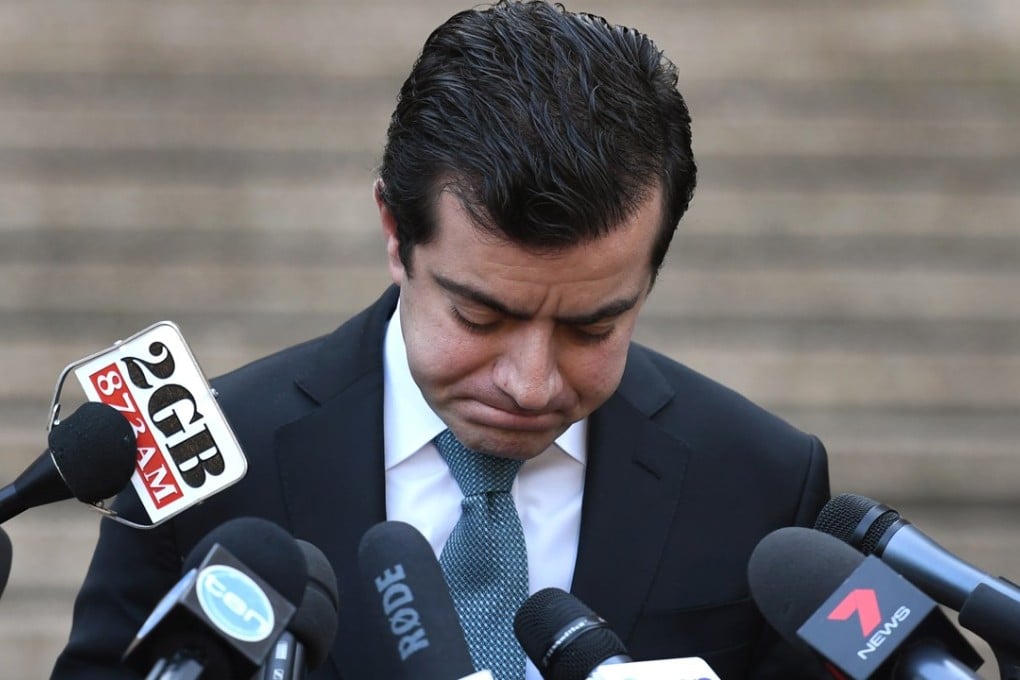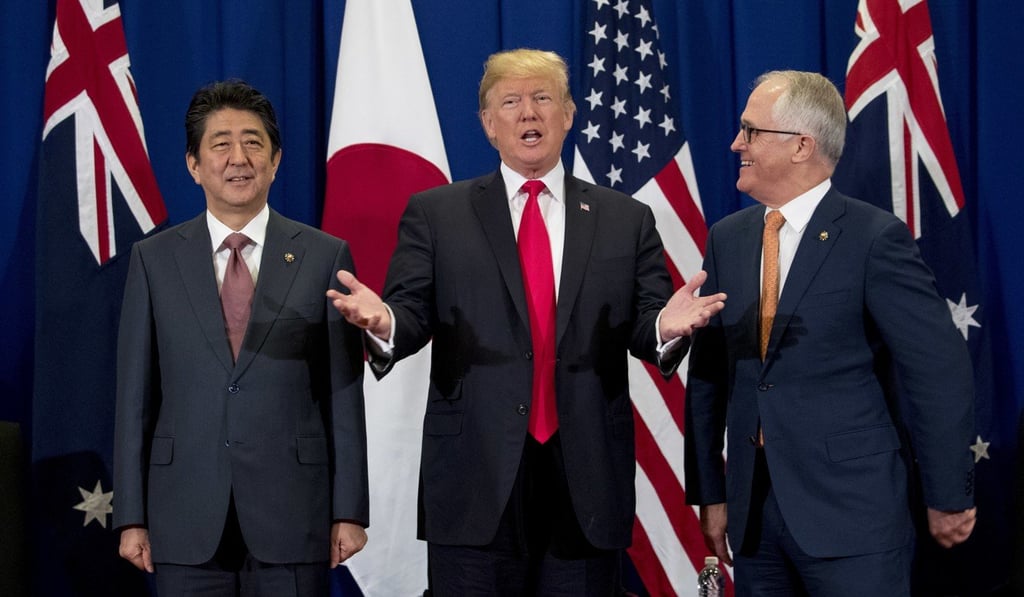Advertisement
Australia’s balancing act between US and China will prove one of its greatest challenges
John Power says recent tensions over Chinese influence in Australian politics reveal the uncomfortable truth that, for Australia, which leans on China for economic growth and the US for security assurance, having the best of both worlds won’t be easy
Reading Time:2 minutes
Why you can trust SCMP
0

It would be a massive understatement to say Australia relies heavily on China for its enviable standard of living, the result of 26 years of uninterrupted economic growth. Beijing isn’t just the country’s biggest trading partner – it’s its biggest by far. In 2016, Australia’s two-way trade in goods and services with China amounted to a whopping A$155.6 billion (HK$938.5 billion), more than double its commerce with the United States. China’s ferocious appetite for commodities such as iron ore and coal is a large part of the reason Australia rode out the 2008 financial crisis practically unscathed.
Lately, though, political realities expose uncomfortable truths at the heart of this relationship. Earlier this month, an influential senator for Australia’s main opposition party announced his resignation after becoming embroiled in a series of controversies that raised questions about whether his loyalties lay closer to Beijing than his electorate of New South Wales. Sam Dastyari, once a rising star within the centre-left Labor Party, was revealed to have warned a Chinese Communist Party-linked party donor that he was likely under surveillance by Western intelligence agencies, after earlier accepting a A$1,600 donation from the same individual to cover a travel debt. Soon it emerged that Dastyari had given a speech supporting Beijing’s stance on the South China Sea, directly contradicting the policy of both the government and his party.
His downfall might have been a strange aberration in the post-cold war era if it hadn’t occurred against a backdrop of increasingly alarming warnings about Chinese subversion. The secretive Australian Security Intelligence Organisation has leaked various stories about overt and covert efforts by Beijing to meddle in Australian democracy, from spying on Chinese university students to cultivating Manchurian candidates for elected office.
How America wrote the rule book on ‘foreign agents’
The Australian government this month unveiled sweeping new laws to clamp down on foreign political donations and other external interference. Officially, Canberra didn’t single out Beijing as the target, with Prime Minister Malcolm Turnbull speaking in general terms about evolving threats from outside.
Still, it doesn’t take a genius to read between the lines. Beijing has reacted furiously to claims of interference, summoning Australia’s ambassador and using state media to air charges of “hysterical paranoia” and racism . While so far limited to heated rhetoric, the dispute could become a serious headache for Australia if it were to escalate into economic warfare – a possibility hinted at by Chinese state media. China has hit countries in the wallet for displeasing it before. Just ask South Korea, which found itself blacklisted by China after accepting the deployment of a US missile defence system that was bitterly opposed by Beijing.
Turnbull in a China shop: Did Beijing bogeyman sway an Australian election?
Recent tensions in Australia’s relations with China highlight an awkward truth: it has hedged its fortunes on a country it doesn’t quite trust or feel compatible with in values. While increasingly tied to Asia since the 1980s, Australia remains unmistakably Western and part of the US-led global order. If Beijing has supplanted it on the trade front, Washington is still Canberra’s security guarantor and its guide in foreign policy.

Why Australia needs a smarter China policy
Ultimately, Australia wants the best of both worlds. With rival superpowers on both sides, it sees a way to have both its security and economic needs taken care of. It’s a balancing act Australia has managed successfully for years. But it’s a manoeuvre that looks ever more precarious. Continuing to pull it off is likely to be among Australia’s greatest challenges.
Advertisement